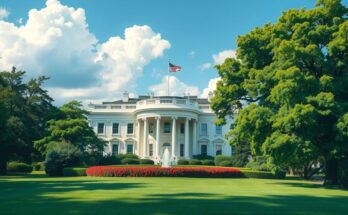The opposition coalition in Mauritius has won the recent elections by a landslide, securing all parliamentary seats and rejecting the ruling government led by Prime Minister Pravind Jugnauth. Navin Ramgoolam, returning as Prime Minister, succeeds after the ruling coalition failed to capture any seats amid corruption allegations. This electoral shift signals a desire for political change among the electorate.
In a stunning electoral outcome, the opposition coalition in Mauritius has achieved a resounding victory, securing all seats in the national parliament, signaling a significant repudiation of the incumbent government led by Prime Minister Pravind Jugnauth. The election results, disseminated across various constituencies on November 11, 2024, reveal that the ruling coalition fell short, failing to capture any of the available 62 parliamentary seats. Prime Minister Jugnauth acknowledged the impending defeat early in the process, indicating the opposition’s dominance across the nations’ 21 constituencies. The opposition, under the Alliance for Change coalition, will bring about the return of veteran politician Navin Ramgoolam as Prime Minister, following his previous tenure from 1995 to 2000 and again from 2005 to 2014. This outcome marks a pivotal shift in the political landscape of Mauritius as Jugnauth, who assumed office in 2017, has faced extensive scrutiny over allegations of corruption linked to leaked audio recordings involving political figures and business associates. While final official results are anticipated, including additional seats from Rodrigues Island, the opposition has already been declared the clear victor in 60 announced seats, with over one million citizens registered to participate in this election. As Mauritius is recognized as a stable democracy with a growing economy bolstered by tourism, finance, and agriculture, the results of this election may have profound implications for the nation’s governance and policies moving forward.
Mauritius, an island nation located about 2,000 kilometers off the eastern coast of Africa, is known for its democratic stability and diverse economy. Since gaining independence from British colonial rule in 1968, Mauritius has conducted a series of elections, marking this as the 12th election in its history. Recent political turmoil, however, has arisen from corruption allegations against the ruling party, highlighting the challenges and dynamics of Mauritian governance as it navigates concerns related to political integrity and public trust in leadership.
The electoral triumph of the opposition coalition in Mauritius signifies a pivotal moment in the country’s political landscape, with the return of Navin Ramgoolam as prime minister after several years of governance by Pravind Jugnauth. This election not only reflects the electorate’s desire for change but also underscores the importance of addressing corruption and restoring confidence in Mauritius’ democratic processes.
Original Source: apnews.com




